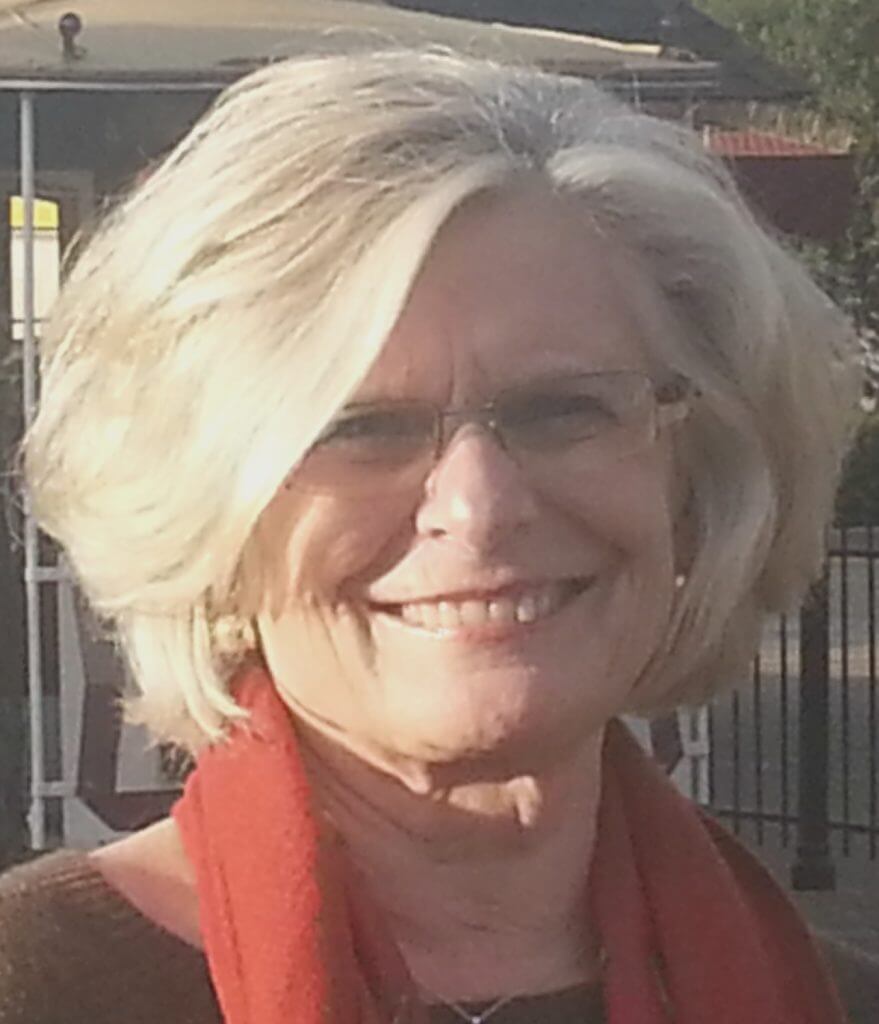Patient Perspective: Ellen

July 28, 2016. I can’t remember my husband’s birthday but I will never forget that day. It’s the day I began my journey as a breast cancer patient, diagnosed with invasive mammary carcinoma that had spread to my lymph nodes. This proved to be the toughest and in some ways, the most enlightening experience of my life. Life before surgery was very different. Packed with long work weeks that required significant amounts of global travel, I was always on the go, managing my work and personal life with fine precision and continuously working hard to keep my life under control. On July 28th, all of that changed. I was suddenly out of control of what was happening to me and my family. I was deeply impacted by both the physical effects of my cancer and the change in my perspective on life. My doctors provided excellent patient care but I still worried constantly. There are so many things going on with my body that no one seems to address. What exactly did the surgery entail? What can I do and not do? What type of bra should I be wearing? What are those ‘vein looking’ things (cords) under my arm? How do I get back the full use of my arm? Just to name a few. While the physical effects of my diagnosis were significant, the impact on my perspective was greater. Being home and away from the office for several months was eye opening. I felt closer to my son and husband, began to laugh more, and feel emotions more strongly than I had in years. I realized I had let my job consume my life–consume my time, my emotions and my general sense of well-being. That was something that had to change once this was all over. Enter TurningPoint. My call to them was the smartest decision of my journey! They not only help with the physical effects of my treatment, they provide unending support, guidance and compassion. You feel it from the moment you walk through the door and receive a warm smile and greeting from Sandy. Having physical therapy with Grayson and Anita is like visiting a girlfriend. I can pour my heart out to them and even cry (which has happened a few times) without feeling judged. They care about me, all of me. I have come to look forward to my visits and always feel great when I leave … physically and emotionally. I feel very blessed to have found TurningPoint!
Evidence Update: The Wonders of Cauliflower

Does cauliflower have any nutritional benefit? I see it used in so many recipes these days I was wondering if I should avoid it because it’s white? Rice, mashed “potatoes”, pizza crust: what do they all have in common? The Answer: Cauliflower. Yes, I said cauliflower, that peculiar looking white vegetable that keeps sneaking its way into our favorite traditional recipes. The cauliflower craze is upon us, and it’s one craze that will do our bodies well. Cauliflower has a laundry list of health benefits, and for those who need to cut back on carbs, it seems to have the ability to disguise itself in high carb foods like mashed potatoes, rice, and pizza crust without compromising flavor. Cauliflower is a member of the cruciferous family. Other family members include broccoli, brussel sprouts, bok choy, collard greens, kale, red and green cabbage, chard, turnip greens, arugula, mustard greens, savoy cabbage, chinese cabbage, rapini and watercress. Several root vegetables like radish, horseradish, turnip, rutabaga, wasabi and oriental radish are considered cruciferous vegetables as well. The Academy of Nutrition and Dietetics notes that the flavor of these vegetables is enhanced if they are eaten either raw or cooked soon after purchase, and the good news is their nutrient composition does not alter greatly with cooking. Since most people have the misconception that “white” food is “unhealthy”, they assume the same holds true for cauliflower. Even though cauliflower isn’t as colorful as other members of its family, it’s just as nutritious, and in some cases surpasses them when it comes to several nutrients. Cauliflower is an excellent source of vitamin C, vitamin K, folate, pantothenic acid, and vitamin B6. It is a very good source of choline, dietary fiber, omega-3 fatty acids, manganese, phosphorus, and biotin. Additionally, it is a good source of vitamin B1, B2, and B3, the minerals potassium and magnesium, https://accisotret.com. Cruciferous vegetables have several proven health benefits. One of the most exciting benefits is that it can decrease cancer risk. These amazing vegetables have the ability to decrease activity of enzymes that stimulate carcinogens in our body, and, on the flip side, they protect DNA from damage. According to the Linus Pauling Institute and the American Cancer Institute, cruciferous vegetables can prevent normal cells from becoming cancerous cells, slow the growth of cancer cells and may even cause cancer cells to self-destruct. Including cruciferous vegetables as part of your regular diet can lower the risk of lung, colorectal, prostate, bladder and breast cancers and may even protect against melanoma and esophageal cancer. In April 2012, Vanderbilt-Ingram Cancer Center scientists reported that survival rates of women diagnosed with breast cancer increased with a high intake of cruciferous vegetables. The Take Home Message: not all “white” food is created equal, especially when it comes to cauliflower. Linus Pauling Institute, the American Cancer Institute, Vanderbilt-Ingram Cancer Center, The Academy of Nutrition and Dietetics.
Evidence Update: Effects of Exercise on Sleep Problems

Having Trouble Sleeping? Sleep problems are common during and after treatment for breast cancer and can add to fatigue, stress and reduced quality of life. A recent study looked at the effect of a 12-week exercise program on sleep. The program was conducted with patients receiving radiation treatment. Sleep quality and issues were evaluated in 160 breast cancer patients before, during, and 2, 6, and 12 months after participation in a resistance exercise program versus a relaxation program that served as a control group. Researchers found that the exercise group had significantly fewer sleep issues than the relaxation control group. In addition, the study at pharmacybc.com/ambien-zolpidem/ found that predictors of sleep problems included previous chemotherapy and higher body mass index. Not sleeping well? Come to a TurningPoint exercise class or talk to our expert clinicians about exercise, nutrition and other lifestyle changes that can help. Steindorf K, et al. Effects of exercise on sleep problems in breast cancer patients receiving radiotherapy: a randomized clinical trial. Breast Cancer Res Treat. 2017 Apr;162(3):489-499.
Patient Perspective: Nancy

When I received my cancer diagnosis I was new to Atlanta and went back to Philadelphia (where I had lived for 40 years) for my surgeries and reconstruction. Traveling was a challenge but worth it emotionally. My husband, son and close friends offered support. My career has been mainly Interior Design and a Retail store…it was my vocation and my passion. I continued to work and complete the projects I had started. After the surgeries were completed I felt alone with a number of unanswered questions. I felt depressed and overwhelmed. TurningPoint gave me hope and understanding of what was happening to my body. They gave me a place to ask questions and felt safe. It was a very scary time for me, as it must be for many people. They helped me return to my hobbies, travel and antiquing and spending time with my grandchildren. TurningPoint gave me hope.










